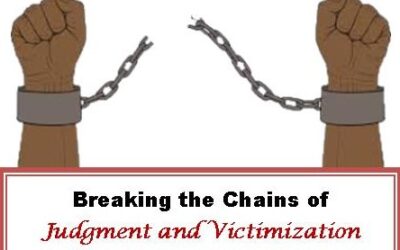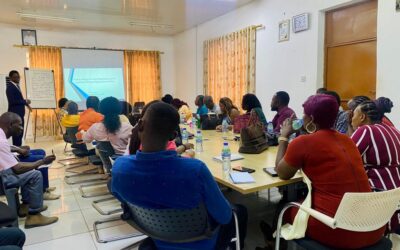The Bo Remand Home situated within the Benemix Community is intended to house juveniles who come in conflict with the Law and are on remand awaiting commencement of trials, during trials and while serving their punitive term of detention. According to the Remand Home Ordinance, in-mates should not exceed six months on remand; they should be bailed, released or committed, except for offenders kept for felonious offences. Sentenced male and female offenders serve their terms here too as facilities exist to house them.
While the Child Rights Act requires Remand Homes to provide rehabilitation for in-mates as their primary focus, such facilities as schooling, literacy classes and skills training facilities are entirely lacking here, much as provisions for recreational activities (football, checkers, Ludo and physical exercises) are, added to their lack of medical attention, water supply and foam mattresses.
At the time of interview the remand home in Bo had 13 in-mates (all males) 2 serving sentences and 11 on remand. Female in-mates are said to be seldom brought in, the latest having been brought in between December and January 2013. The most pronounced facility enjoyed by the boys is the three square meals of tea and bread for breakfast and rice for lunch and dinner. Little wonder that they look comparatively good as confirmed by their female cook and the boys themselves. Two compartments (rooms) exist for sleeping, with a male and female guard dwelling by the in-mates separately. This is intended to guard them from escaping since four boys broke through the iron bared windows and escaped last December. The foam mattresses, 2 inches thick, are old, tattered and not enough for them all. So the concrete-bed structures are now abandoned as the plank crossings over them are absent; so they spread the foam on the bear floor without sheets and coverings. The facility is protected by a ten-foot high fence run over with barbed wires and there is infrequent electrical supply. There is no safe drinking water such as runs from a tap; and the only well from which water is hand-pumped is out of use, and the in-mates go out to fetch water from other neighbourhoods in the community.
The CARL/SL observer visiting this Home met the boys playing a handball game called ‘Tent’ or ‘Sox-ball’. No football, checkers, Ludo or other facilities for physical exercise exist. Worse still is the absence of formal or non-formal training facilities for the youngsters. So they are virtually condemned to confinement without going through any reform process. They leave the Remand Home traumatised, hardened and having learned nothing other than varieties of criminal skills from their in-mates, their only role models. The sad result is that they return to their communities without having learned any job skills, or continued education of any kind.
In the recent past Defence for Children International (DCI) was providing these youngsters some forms of non-formal education (Literacy Classes), and CARL/SL offering them paralegal services to assist them in their court trials. Other forms of assistance have been in the form of a set of DVD players and a medium sized deep freezer in September 2011 donated by Prison Watch, and then a portable bedroom fridge offered by the Ministry of Social Welfare Gender and Children’s Affairs (MSWGCA).
The Home has eight (8) staff members: five (5) from the MSWGCA and 3 from the government prisons department, the latter running security protection on weekly shifts. In past years only once had 3 in-mates escaped at night (last December), at a time when a part of the high walled fence had broken, but the escapees were caught not long after.
Three of the in-mates interviewed, all aged 16, were on remand for adult-like offences ranging from house breaking and larceny to assault and wounding with intent. The first among them had just graduated from serving a two years sentence in Kenema prison and within a forthright was caught in Bo city carrying a bag containing an iron bar and a knife, mazing between houses after 2:00 am. The second stabbed his fellow in a mere scuffle at Tokpoi Town Section in Bo city. A third confessed that he had a case that had been committed to the Bo High Court and for which he was standing trial. It is as if Lucifer has pronounced doom on the youth of our age!
The Remand Home is credited for its impressive separation of in-mates from adult and more seasoned criminals save for their joint cells during police investigation and detention. However, there are a number of challenges facing staff of the facility. The more urgent challenges for the MSWGCA staffs are the lack of sufficient furniture in the office for their use and for accommodating visitors, and the low salaries they are paid. The virtually broken steel bars across the windows need urgent rehabilitation to secure the unit and prevent in-mates from escaping. The Remand Home needs to have additional staff to augment the effort of the 2 prison guards that work twenty four hours and throughout the week on rotational shifts, and their salaries need to be increased.
The in-mates urgently require a rehabilitation of their concrete-walled beds, and they need to be provided with bed sheets, bed covers, plank crossings, sufficient foam mattresses, soap, buckets for bathing, drinking water, cooking spoons and more. Most importantly, there need to be provision for their formal education or non-formal skills training, to equip them and make them fit for proper re-integration into society after their remand period, and enable them to readily return to school, as provided for in the Child Rights Act. Further, transportation facilities need to be put in place to take these detainees to and from courts for their trial.
That this Home lacks the forementtioned repairs, sufficient furnishing, schooling and skills training, suggests that the MSWGCA needs to reawaken its efforts and be more proactive in improving the conditions in which juvenile detainees are kept. Holding them under such odd conditions amounts to abusing and violating their rights, as well as flouting international principles on juvenile justice, including the United Nations Standard Minimum Rules for the Treatment of Prisoners, the United Nations Standard Minimum Rules for the Administration of Juvenile Justice (the Beijing Rules), and the United Nations Rules for the Protection of Juvenile Deprived of their Liberty (the JDL Rules).



